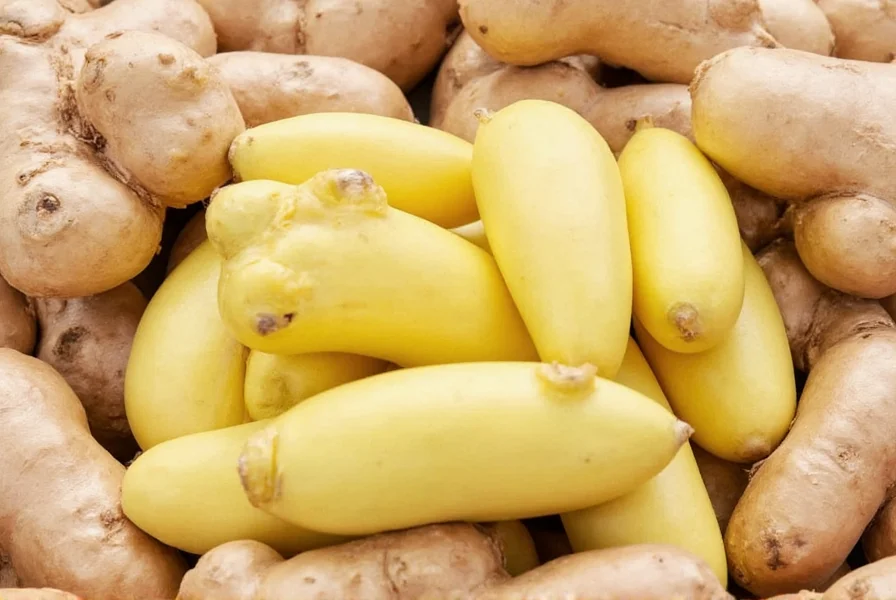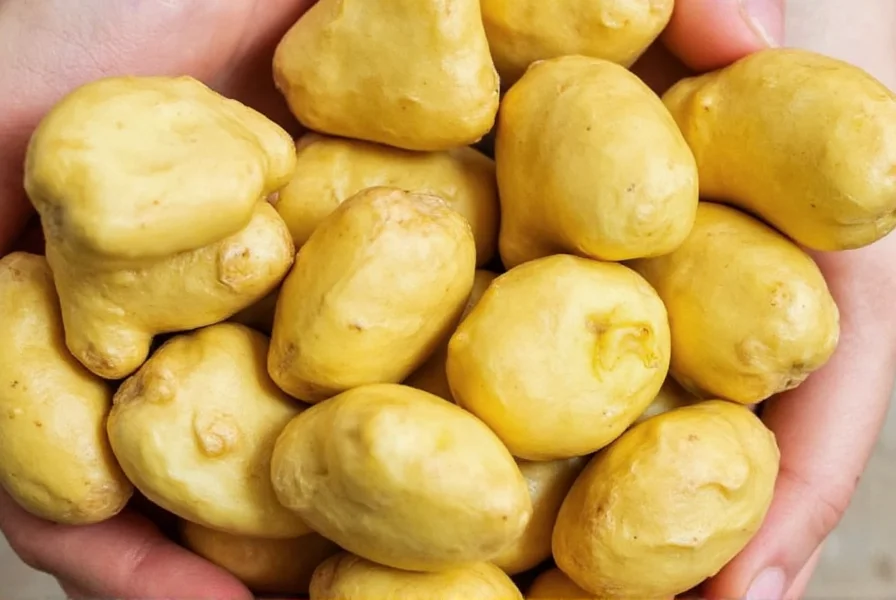Proper ginger storage preserves its pungent flavor and fibrous texture while preventing mold growth and dehydration. As a root vegetable with high moisture content, ginger requires specific conditions to maintain freshness beyond its typical 1-2 week shelf life at room temperature. Understanding the best ginger preservation techniques saves money and reduces food waste in your kitchen.
Refrigeration: The Optimal Short-Term Storage Method
Refrigeration significantly extends ginger's freshness while maintaining its culinary properties. The cold, humid environment slows enzymatic browning and moisture loss that occurs at room temperature.
For best results when storing ginger in the refrigerator:
- Keep ginger unpeeled to preserve natural protective layers
- Place in an airtight container with a slightly damp paper towel
- Store in the vegetable crisper drawer where humidity is higher
- Check weekly for any signs of spoilage
This method keeps ginger fresh for 2-3 weeks, making it ideal for those who use ginger regularly but not daily. The refrigerator's consistent temperature prevents the sprouting that often occurs in warmer environments.
Freezing Ginger for Long-Term Preservation
Freezing represents the most effective method for long-term ginger storage without significant quality degradation. Unlike many vegetables, ginger freezes exceptionally well due to its fibrous structure and low water content relative to other root vegetables.
| Storage Method | Duration | Quality Preservation | Best For |
|---|---|---|---|
| Room temperature (cool, dark place) | 5-7 days | Good | Immediate use |
| Refrigerator (airtight container) | 2-3 weeks | Excellent | Regular cooking |
| Freezer (whole) | 6 months | Very good | Occasional use |
| Freezer (grated) | 3 months | Good | Frequent cooking |
Two effective freezing techniques exist for different culinary needs:
- Whole freezing: Place unpeeled ginger in a freezer bag, removing as much air as possible. When needed, grate frozen ginger directly without thawing—this actually makes grating easier.
- Pre-grated freezing: Peel and grate ginger, then portion into ice cube trays with a small amount of water or oil. Once frozen, transfer cubes to a freezer bag for convenient single-use portions.
When properly frozen, ginger maintains 90% of its flavor compounds for up to six months. The freezing process ruptures cell walls, making frozen ginger easier to grate but slightly more moist when thawed.

Avoiding Common Ginger Storage Mistakes
Many home cooks unknowingly shorten ginger's shelf life through improper storage practices. Understanding these common errors helps maximize freshness:
- Storing peeled ginger: Exposed flesh oxidizes quickly—always keep ginger unpeeled until ready to use
- Using plastic wrap alone: Creates condensation that promotes mold—use rigid containers instead
- Refrigerating in vegetable bags: Standard produce bags don't control humidity properly
- Storing near ethylene-producing fruits: Apples and bananas accelerate ginger sprouting
Identifying Spoiled Ginger
Knowing when ginger has gone bad prevents food waste while ensuring safety. Properly stored ginger shows these signs of spoilage:
- Soft, mushy texture when pressed
- Dark yellow or brown discoloration beneath the skin
- Mold growth (white, green, or black spots)
- Sour or musty odor instead of spicy fragrance
- Deep wrinkles indicating significant moisture loss
Sprouting ginger remains safe to eat—the sprouts simply indicate the root is trying to grow. Simply cut off sprouted sections and use the remaining firm portions. However, any ginger with mold penetration or soft spots should be discarded entirely.
Specialized Ginger Preservation Techniques
Beyond standard refrigeration and freezing, several specialized methods work well for specific culinary applications:
- Vinegar preservation: Submerge peeled ginger in rice vinegar for pickled ginger (lasts 3-4 weeks refrigerated)
- Drying: Slice thinly and dehydrate at 135°F (57°C) for 6-8 hours for shelf-stable ginger (store in dark container for 6 months)
- Ginger syrup: Simmer sliced ginger in equal parts water and sugar for a versatile cocktail ingredient (refrigerate for 1 month)

Maximizing Ginger Freshness: Practical Tips
Implement these professional kitchen techniques to extend ginger's shelf life:
- Buy ginger with smooth, tight skin—avoid roots with wrinkles or soft spots
- Store whole pieces rather than pre-cut sections
- Keep ginger away from strong-smelling foods as it absorbs odors easily
- For cut ginger, press plastic wrap directly against the exposed surface before container storage
- Rotate your ginger supply using the "first in, first out" principle
Understanding proper ginger storage techniques transforms this versatile ingredient from a frequently wasted purchase to a reliable kitchen staple. Whether you're a home cook or professional chef, implementing these evidence-based storage methods ensures you'll always have fresh ginger available for your culinary creations.
Frequently Asked Questions
Can you store ginger at room temperature?
Yes, but only for short periods. Store unpeeled ginger in a cool, dark place away from sunlight for up to one week. Beyond this timeframe, refrigeration is necessary to prevent mold growth and dehydration.
Should you wash ginger before storing it?
No, washing ginger before storage introduces excess moisture that accelerates spoilage. Only wash ginger immediately before use. The natural protective layer on unpeeled ginger helps maintain freshness during storage.
How do you store cut ginger properly?
Place cut ginger in an airtight container with a slightly damp paper towel, ensuring the paper towel touches the exposed surface. Store in the refrigerator and use within 1 week. For longer storage, freeze cut pieces on a tray before transferring to a freezer bag.
Does frozen ginger lose flavor?
Frozen ginger retains approximately 90% of its flavor compounds when properly stored. The freezing process actually makes grating easier, and frozen ginger works perfectly in cooked dishes, smoothies, and teas without needing to thaw first.
Can you store ginger in water?
No, storing ginger in water accelerates spoilage and promotes mold growth. While some suggest this method, food safety experts confirm that submerging ginger creates ideal conditions for bacterial growth and significantly reduces shelf life compared to dry storage methods.










 浙公网安备
33010002000092号
浙公网安备
33010002000092号 浙B2-20120091-4
浙B2-20120091-4